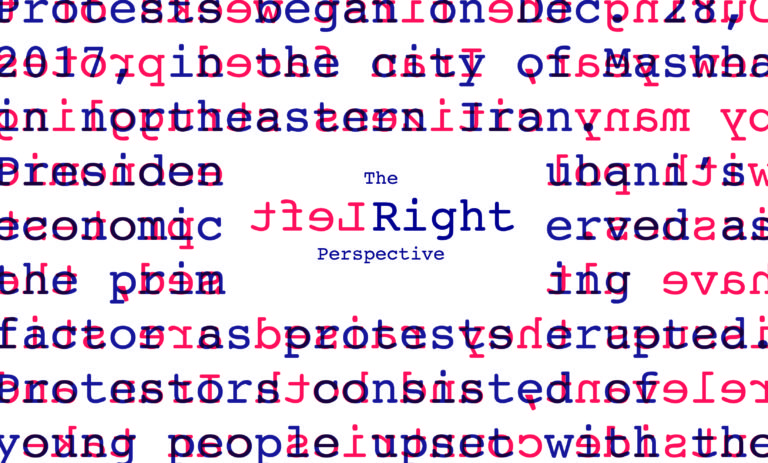By Elijah Lutz, Opinion Editor
During the first weeks of the new year, Iran faced protests by many citizens struggling with political and economic issues. While these protests have ultimately ceased, the issues they raised are still relevant, and both Iran and outside countries can take action to help.
The protestors were on the streets for a wide variety of reasons. Iran is currently facing an impending financial disaster: food and gas prices are rising, the national economy’s performance can be called lackluster at best and unemployment is growing among the young adult population. Over 24% of those aged 15-29 are unemployed, according to CNN. This joins other issues, such as growing government corruption and the lack of economic stimulation from other countries following the signing of the nuclear deal in 2015.
These protests should paint a picture for us. While the economic struggles of Iran are not ours to blame, the lack of investment in Iran from other nations adds a bit of lighter fluid to the growing fire. Many Iranians held hopes that the nuclear deal would result in growing economic prosperity for the struggling state, with funds from the more prosperous nations of the deal: the U.S., the U.K., Germany, France, Russia and China. On our end, it doesn’t appear that the investment in Iran will come anytime soon, with President Trump continuing to ramble his incoherent distaste for the country and its government, and a Republican Congress that, on the whole, agrees with him.
Iran isn’t making it easier for us to change minds, either. Supreme Leader Ali Khamenei assigned blame for the protests to Iran’s unnamed “enemies,” with assumptions being made that he means President Trump and the U.S. This is combined with continued anti-American rhetoric that the Iranian leadership regularly hashes out, creating a hostile environment for any potential American businesses that want to set up shop in downtown Tehran, or any citizen hoping for democratic reform. Further, political corruption and mismanagement from the current regime have been the primary cause for the monetary woes the people are facing.
The reasons for the protestors taking to the streets paint an uneasy picture for the Iranian government, too; things are not pleasant for many of its citizens, and they won’t just sit by and let this happen to them. In the 70’s, the Iranian government changed from a monarchy to an Islamic republic following a revolution. The new government promised change and improvements to the citizens who suffered social injustice and were fueled by religious zeal. However, the Iranian people have not seen much change for the better by a government that promised more when overthrowing a relatively successful and prosperous monarchy.
Iran is a democracy in some sense of the word; the citizens vote for the president and legislators, but the elections are supervised by clerics and the candidates are approved by a body of religious leaders and jurists, all appointed to their positions by the Supreme Leader: an Islamic cleric who is chosen by the Assembly of Experts, who are directly elected, yet still must be approved by the Supreme Leader. However, the protestors crave more democracy than the system currently in place, and history has proven that this desire, if left unchecked, could fuel tensions into
another revolution.
So what do I think should happen? Simple. Changes should be made both domestically and internationally. Iran needs to recognize the issues at home and bring political reforms that turn toward more democracy and a loosened grip from the religious authorities. Together these changes should help alleviate some of the tensions the people feel, and should be combined with a crackdown on corruption and economic reforms designed to revitalize the dwindling economy.
On our end, a more willing and diplomatic approach to Iran could help things tremendously. The Cuban diplomatic thaw saw a hope that Cuba would grow economically, and in things such as tourism it has. Perhaps, a thaw of relations with Iran could take place, opening the door for western capitalist institutions to invest in Iran and sparking a revitalization that could inspire change and prosperity for a people who need it.




